- Home
- Patrick Robinson
Kilo Class (1998) Page 22
Kilo Class (1998) Read online
Page 22
He could see Ray and Fred chatting under the light in the doorway. They were talking to Cathy Westenholz. Ray could see the rain had just about stopped, and Cathy was dressed to go outside. He could not turn away. They had all seen him, and he walked boldly up to them. “Hiya, Cathy,” he said. “There’s some kind of electrical stuff on this ship that’s playing hell with the radio, we gotta get out on shore. Get some distance between us and the ship’s generators.”
Cathy laughed. “I’m going to the little café and shop. I just wanted a walk. It’s over there by those trees…wanna come?”
“Well, not really,” said Rick, whose mind was racing as he blurted out the first reasonable sentence he could think of. “I don’t want you to leave your mother alone in that bar, Cathy. I just came by, and there were some Russians getting kinda rowdy. The Colonel was in there, but they weren’t slowing down any.”
“Oh, Mom’ll be fine,” said Cathy brightly. “Come on, let’s walk outside for a bit. The rain’s stopped.”
Rick put his arm around her shoulders and moved her to the side. “Cathy,” he said. “I want you to do me a favor. Go up and get your ma out of that bar. I know I should have stopped myself, but then we’d miss the scores, and I thought you were with her. Please, Cathy,…go up and make sure everything’s okay. Please.”
“Okay…will you guys be right out here when I get back? Maybe I’ll take mom over to the café.”
“Sure,” said Rick. “See you a bit later…and thanks.”
Cathy headed back to the upper decks, and the three SEALs walked across to the dirt road and swung right, breaking into an easy loping run as soon as they were out of the artificial light. The time was 2114 and Rick kept going for about 1,500 yards before leading the way quite suddenly into the woodland away from the lake. All along the left side of the road there had been tall, soaking wet foliage, and he knew the trees went back deeply for a long way. He knew from endless study of the satellite photographs. And he whispered to his companions they must keep going for one mile, to the open field beyond the pines, where the canisters could safely land.
After fifty yards they came to a stop in a place where the trees seemed less dense, and Rick signaled a halt. Each of the SEALs changed into sneakers and zipped their street shoes into their parka pockets. They then took out their tightly wrapped Gore-Tex lightweight waterproof trousers and pulled them on over their pants.
While the SEAL leader checked the GPS, Chief Cernic pulled out his compass and set it for a walking bearing, 320. They would endeavor to hold that line as they went, knowing the way back would be course 130. Walking a mile in a dense wood is very different from walking a mile along a road. It’s almost impossible to walk dead straight through a wood in broad daylight. In pitch dark it is impossible.
Fred led the way, trying to avoid thick brush, and correcting the course when he could. They pressed forward for fifteen minutes, making somewhat slow progress. Rick thought they had gone no more than half a mile, and it was beginning to rain again. There was not a sliver of clear moonlight through the invisible clouds, and the skies were without stars. Nonetheless, the full moon was back there somewhere, and it provided a muted, diffused light, good enough for Fred to see about three or four yards ahead. He walked with his left arm out in front of him to avoid thin overhanging branches. Their footsteps made a soft padding sound, occasionally broken by the sound of a snapping twig.
Above them they heard the unmistakable call of a night owl. “Jesus, what the hell’s that?” Fred cried, in response to a quick scuffling of footsteps in front of him. “Probably a fucking grizzly,” said Lieutenant Schaeffer, walking right behind him. “Don’t worry, I’ll tell Rick…he’ll kill it with his bare hands.”
The wood seemed endless, and Rick thought they must have gone almost a mile when the trees suddenly began to thin out, and they could feel the rain driving at them sideways from the left. Visibility was so limited they might just have been in a clearing. Only a whispered cry of “FUCK IT!!” from Fred clarified the situation. The Chief had hit a brick wall. Actually it was a low, dry stone wall, and he had hissed in fury rather than pain. It was fury with himself really, that he had slightly misjudged its position, when the satellites had identified it so clearly for them.
They gathered by the wall, and they could feel the wind rising, the rain slashing down. Exposed now, without any cover, the SEALs’ waterproof jackets and trousers provided welcome protection and warmth. Ray placed one of his dim chemical light markers, glowing red, on the wall, and they proceeded forward, still warm in their “double trousers” and shirts and sweaters under waterproof parkas. The baseball caps were too wet to matter, but at least they helped to keep their heads warm.
As the weather worsened, and the clock ticked on, it became clear they had reached the wide flat grazing pasture the satellite pictures had transmitted. Most of the neighboring fields were growing fields for cereals and vegetables and were presently sprouting green but sparse shoots. The mud was pretty terrible right here on the firmer grazing land, but on the winter wheat it would have been impossible. Tiresome clods of mud were already forming on the SEALs’ sneakers as they crossed the pasture.
This heavy rain was the one single area for which the backup team in Coronado had not been able to plan. The satellites had photographed these fields over and over, and they knew there was only limited grazing land right here…land over which the SEALs must heave their heavy burdens.
Thus the drop zone effectively selected itself. It had to be pasture, and the Coronado executive had decided to take a chance on the weather, hoping there would not be long soaking rains as the SEALs headed north on the waterways. Those hopes had been dashed during a filthy, wet week. And now the situation was as bad as anyone could have imagined. Rick Hunter knew he had the option to abort the mission, and that everyone would understand. But he, with his great strength, believed they could get the job done whatever the conditions.
And they stood in seriously soft going. They were in open country, about three hundred yards from the wood, the red glow of the chemical light barely visible against the wood’s blackness. The time was 2236, and almost five hundred miles to the north, Lieutenant Colonel Jaxtimer was flying over Finland, toward Russia.
The entry into Russian airspace went without a hitch. Major Parker called in their identifying numbers, and the Russian controllers cleared them instantly, scarcely checking that the numbers did in fact coincide with the flight plan filed by American Airlines. With the blessing of the Russian authorities, the B-52 pressed on southward toward Lake Onega.
Colonel Jaxtimer knew they had to drop their three-part cargo within a four-mile radius circle if the canisters were to lock on, and land, close to the beam from the SEALs’ target-marker on the ground.
Both the aircraft and the SEALs were working to the five-meter accuracy of the GPS. If the SEALs were down there, Colonel Jaxtimer would find them. The big laser sensor in the nose of the B-52 would pick up the beacon from twenty miles, about two and a half minutes of flying time. The canisters would be released when the special bombsight signaled. Once the marker had been picked up, it was a “hands-off” routine, as far as Colonel Jaxtimer and the US Air Force was concerned.
Behind the Colonel in the control cockpit, Lieutenant Chuck Rider was calling out their position relative to their destination every fifteen miles. Lieutenant Segal had located no threatening indications of a military radar sweep, from the ground or the air. To Russian eyes, the United States Air Force B-52 was just another long-haul commercial passenger jet headed south for the Middle East.
In fact, just about every aspect of the flight plan was a total fabrication. The aircraft was not headed for Bahrain, but for the gigantic US Air Force base outside of Dahran on the east coast of Saudi Arabia. There was also a chance the B-52’s fuel would not last the journey. If they met serious headwinds, the Air Force was sending another tanker out to meet them high over the northern end of the gulf.
By 2
310 the SEALs were becoming very cold, and the rain had not abated. They stood shivering in the field, jogging up and down, trying to get the chill out of their limbs. Water streamed down their Gore-Tex trousers into their sneakers, which were now waterlogged. They were still dry under their parkas, but the cold rain on their faces was numbing. Rick Hunter prayed that the aircraft would not be late, and that the rain would stop. But it didn’t. The SEALs waited in soaking, windswept silence. None of them uttered one word of complaint.
While they waited, the B-52 raced southward, high above the coastal city of Belomorsk on the southwest corner of the White Sea. Its route would take it above the canal, west of the shoreline of the lake. Lieutenant Chuck Ryder had them steady on the required approach course, as the GPS mechanically counted down the range to the tour ship’s Green Stop. As they flew, the Air Force Lieutenant kept his eyes glued to the GPS, watching the numbers change as the satellites gave an update of their position every one and a half seconds. Right now they were crossing 65.30N. At 63.42N they would be slightly to the west of the city of Segeza, just sixty miles from the northern point of the lake and less than eleven minutes from the drop zone. There were only two rules for Colonel Jaxtimer…don’t be early, and maintain a steady course and speed. Any change would serve as a red flag to a Russian bear in a control tower.
The first rule was easy. They were already six minutes late because the favorable jet stream had eased off. The second rule required no great effort because everyone was right on top of their game. This was the US Air Force at its very best. Major Parker’s radio crackled with a communication from ground control. Once more he called out the identification numbers that would give him clear passage across the old Soviet Union.
Back on the ground Lieutenant Commander Rick Hunter strained to hear the sound of an approaching aircraft, although he knew full well that the B-52 would be far too high for that. There would be no sound whatsoever until it had passed overhead and downwind. He was hoping for a few seconds of warning before the canisters arrived, so he still listened and wondered how long they would have to wait. If anything, the rain was harder, and he struggled to control the shivering and shaking such remorseless cold, wet conditions can bring about.
By 2325, he had placed the laser marker unit on the ground and had activated it, its antenna pointing up and northward. The three SEALs then spread out around it, forming a triangle. They were twenty yards apart from each other. Such a formation would give them the best chance of seeing or hearing the airborne canisters as they came in. The marker unit made no sound as its beam lanced upward into the dark Russian sky, and the silence in the field was total, save for the splashing of the rain in the mud. For a moment Rick Hunter thought he might be going mad. How would anyone or anything find him in this freezing wasteland? What could he possibly be doing here?
The trouble was he knew exactly what he was doing here, and he tried to imagine the big long-range bomber heading south toward him. He glanced at his watch every thirty seconds. It was 2334. He did not know it, but Colonel Jaxtimer was out over the northern end of the lake. And Chuck Ryder was counting. The laser marker had just started “painting” on the aircraft’s receiver, the final seconds now ticking automatically.
Lieutenant Ryder quietly, professionally, helping to keep his Colonel on track, confirmed, “Red light, sir. Bomb doors open…
“Looking good, sir…on track…left…left…on track…on track…6238, sir…that’s it…bombs gone.” No elation. No emphasis. Just quiet information.
Beneath the great bulk of the US Stratofortress, the doors of the weapons bay, in the central fuselage section, between the fore and aft sets of wheels, began to close behind the falling canisters, which were already hurtling through the darkness, straight down the laser beam.
The eight mighty Pratt & Whitney TF33 turbofan jets powering the B-52 on toward Moscow left behind a deafening, throaty growl, but it was still not quite audible to the SEALs waiting in the mud below.
Lieutenant Commander Hunter and his men, hunched away from the driving rain, stared at the sky to the north, alert for any warning they might get of the arrival of the canisters. It was almost impossible to see more than about twenty feet above them, and right now there was only blackness. “Should have been here minutes ago,” thought Rick. “Useless fuckers. Have they missed us? Jesus Christ…There’s no way I’m gonna see anything before one of these containers fucking well kills me. But if they don’t drop real close, we’ll never find them. Jesus Christ.”
But then, he suddenly heard the first whisperings of the big Air Force jet engines, high above. “That’s gotta be them,” he thought, his heartbeat rising. And then he saw it—a ghostly shape, almost directly above and very close, falling slightly to one side, jet black. It seemed to swing against the wind. Fast, now slow, silent, and menacing, like a dreadful hooded vampire, swooping low out of the night.
Before the SEAL leader could move more than three paces it was down, landing with a heavy thud in the soft ground not ten yards from where they stood. The field shook, and the parachute billowed and rustled in the wind as Rick wrestled it under control. He called softly into the dark, “Got one. Heads up for the other two.” To himself he muttered, “Holy shit! How about that?”
He heard Chief Cernic say softly, “Here’s one right now…LEFT…LEFT…right there.” And the second canister hit the field almost simultaneously. The third followed five seconds later, twenty yards farther to the south.
“That,” thought Lieutenant Commander Hunter, “was the goddamndest thing I ever saw.” Even more startling, he decided, than the day he and his team blew the engine of General Noriega’s yacht three hundred feet into the air by mistake.
Rick and Ray headed for the nearest canister. “What d’you think, boss?” asked the Lieutenant from Massachusetts. “Do we open it and take a look, or do we just rush all three of them right back over to the woods?”
“The latter,” whispered Rick. “Let’s just get ’em the hell out of this exposed field. Fred, you take the parachutes. Get over to the wood and look for a good spot to bury them with the canisters…leave another chemical marker at the edge of the wood. We’ll start on the first load right away. What are the handles like?”
“Good. Well balanced right in the center,” said the Chief Petty Officer. “Wide with padded leather grips. Big enough for a two-handed hold if necessary.” He grabbed one and lifted. “Christ,” he said. “These things are really heavy.”
Rick’s soaking wet brow furrowed. And he prayed the guys back at Coronado had not misjudged the weight, prayed that he and Ray could lift the canisters. He slipped his big farmer’s hand into the grip of the handle and heaved. The canister came off the ground easily. “Not too bad,” he said. “We can get these over the field and into the trees, but it ain’t gonna be easy—the grass is so damned slippery.”
“Okay, sir,” said the Chief. “I got the first ’chute free. You’re off.”
“Beautiful,” thought Ray. “You’ve made it possible for me to get a hernia…I’ll probably have died from exposure and pain before we get to the next one.”
The Chief quietly confirmed that he now had all three canisters, and the chemical marker at the wall, set up on the GPS. “No one’s gonna get lost unless the GPS dies on us. If you two lose contact, make two short owl-hoots. But stay dead on 130, that’ll take you to the marker on the wall, and on to the wood, where there’s another. If there’s real trouble, that’s three owl-hoots, and we all head for the wall, no matter what.
“By the time I pick our burying spot and get back to the marker light, you two should be there with the first canister. Don’t crash into the goddamned wall like I did.”
“Okay, Chief. Take the left side for your right arm, Ray. We’ll swap sides at a hundred paces.”
The two SEALs lifted the 250-pound canister. Ray’s heart skipped a beat at the weight of it. When he thought of the trek across the slippery grass in the now-driving rain, the bravado drained
from him. Rainwater streamed down his face, and he closed his eyes. “This is going to be hard,” he said to himself. “Pace yourself, Ray, old buddy. And please, please God don’t let me fail.” It was the same prayer that had sustained him through Hell Week.
“It worked then,” he thought. “It’d better work now.” He began to move forward, trying to find a rhythm, trying to settle into a regular stride, trying to ignore the fact that this huge weight was much easier for the massively strong Rick Hunter than it would ever be for him. The first twenty strides were not that bad, but the rain was coming down in sheets, and the wind was rising. Both men were shivering uncontrollably as they fought their way through the pitch black darkness, sliding on the muddy patches, struggling for a foothold. Rick was trying to keep one eye on the dim glow of the compass, trying to hold the flickering arrow on 130. He was also trying to adjust their direction, pulling the canister around, when he went down for the first time, thumping forward onto his knees.

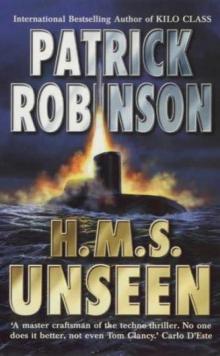 H.M.S. Unseen am-3
H.M.S. Unseen am-3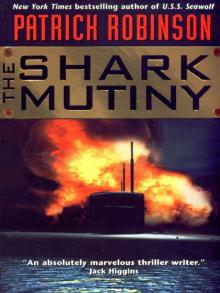 The Shark Mutiny (2001)
The Shark Mutiny (2001)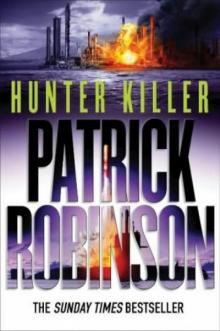 Hunter Killer am-8
Hunter Killer am-8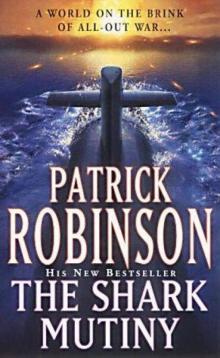 The Shark Mutiny am-5
The Shark Mutiny am-5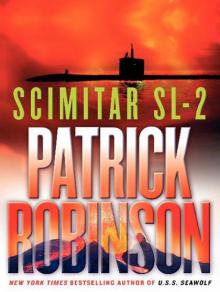 Scimitar SL-2
Scimitar SL-2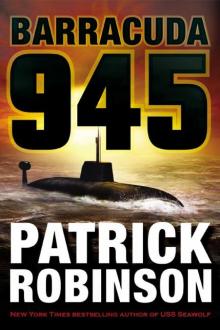 Barracuda 945 am-6
Barracuda 945 am-6 Hunter Killer
Hunter Killer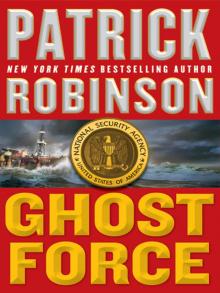 Ghost Force
Ghost Force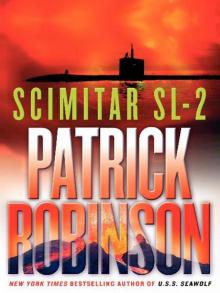 Scimitar SL-2 (2004)
Scimitar SL-2 (2004)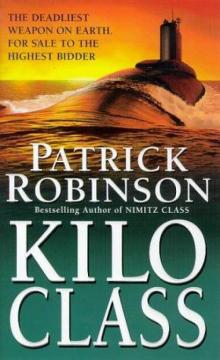 Kilo Class am-2
Kilo Class am-2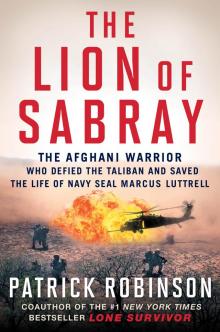 The Lion of Sabray
The Lion of Sabray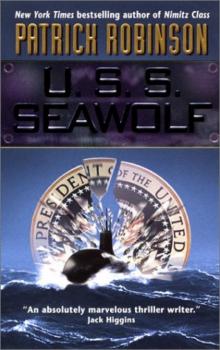 U.S.S. Seawolf am-4
U.S.S. Seawolf am-4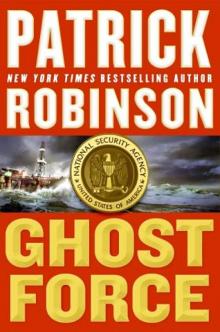 Ghost Force am-9
Ghost Force am-9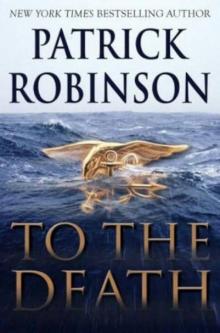 To the Death am-10
To the Death am-10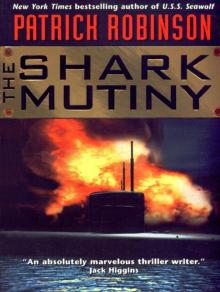 The Shark Mutiny
The Shark Mutiny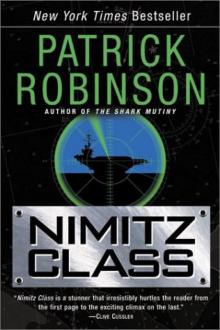 Nimitz Class am-1
Nimitz Class am-1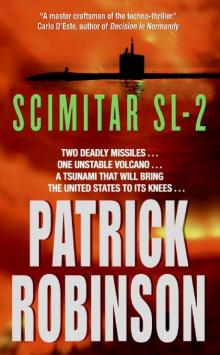 Scimitar SL-2 am-7
Scimitar SL-2 am-7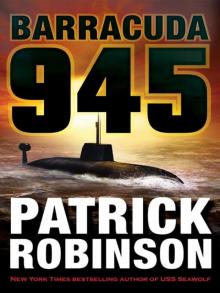 Barracuda 945
Barracuda 945 Intercept
Intercept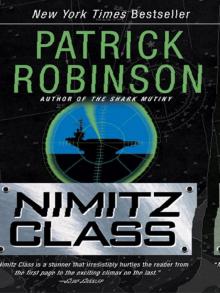 Nimitz Class (1997)
Nimitz Class (1997)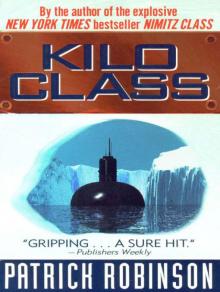 Kilo Class
Kilo Class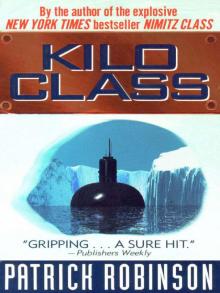 Kilo Class (1998)
Kilo Class (1998) Diamondhead
Diamondhead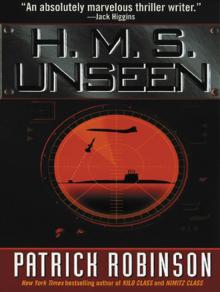 H.M.S. Unseen
H.M.S. Unseen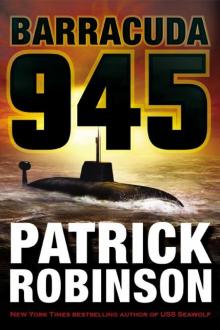 Barracuda 945 (2003)
Barracuda 945 (2003)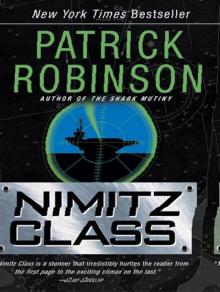 Nimitz Class
Nimitz Class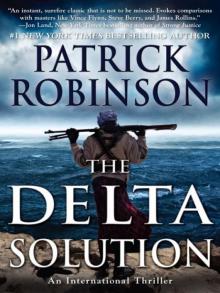 The Delta Solution
The Delta Solution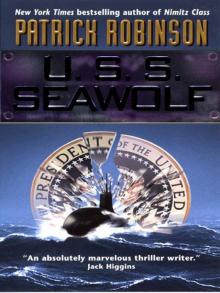 U.S.S. Seawolf
U.S.S. Seawolf